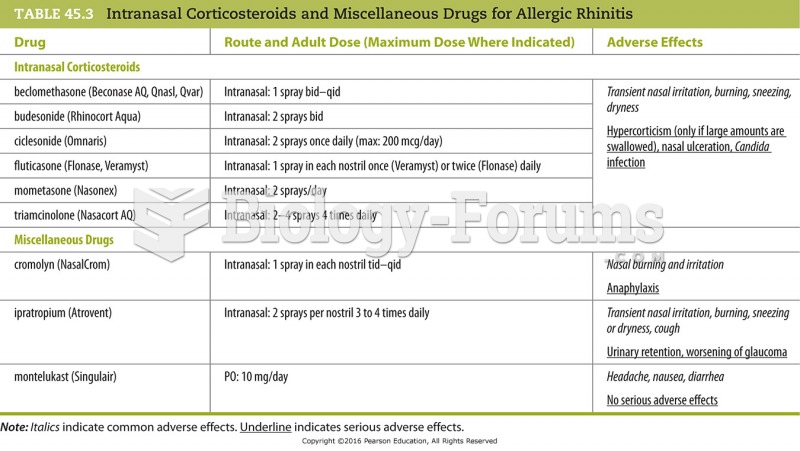Answer to Question 1
Correct Answer: 1, 2, 3, 4
Rationale 1: Antiemetic drugs include many different classes, including antipsychotics, antihistamines, glucocorticoids, and benzodiazepines.
Rationale 2: Antiemetic drugs include many different classes, including antipsychotics, antihistamines, glucocorticoids, and benzodiazepines.
Rationale 3: Antiemetic drugs include many different classes, including antipsychotics, antihistamines, glucocorticoids, and benzodiazepines.
Rationale 4: Antiemetic drugs include many different classes, including antipsychotics, antihistamines, glucocorticoids, and benzodiazepines.
Rationale 5: Opioids is false because antiemetic drugs include many different classes, including antipsychotics, antihistamine, glucocorticoids, and benzodiazepines.
Global Rationale: Antiemetic drugs include many different classes, including antipsychotics, antihistamines, glucocorticoids, and benzodiazepines. Opioids is false because antiemetic drugs include many different classes, including antipsychotics, antihistamine, glucocorticoids, and benzodiazepines.
Answer to Question 2
Correct Answer: 2
Rationale 1: It speeds up your metabolism is incorrect. Orlistat blocks lipase in the GI tract.
Rationale 2: Orlistat blocks the enzyme lipase in the GI tract, which blocks the absorption of fats.
Rationale 3: It causes nausea so you will eat less is incorrect. Orlistat blocks lipase in the GI tract.
Rationale 4: It suppresses appetite, probably by affecting the hunger center in the brain is incorrect. Orlistat blocks lipase in the GI tract.
Global Rationale: Orlistat blocks the enzyme lipase in the GI tract, which blocks the absorption of fats. It speeds up your metabolism is incorrect. Orlistat blocks lipase in the GI tract. It causes nausea so you will eat less is incorrect. Orlistat blocks lipase in the GI tract. It suppresses appetite, probably by affecting the hunger center in the brain is incorrect. Orlistat blocks lipase in the GI tract.







